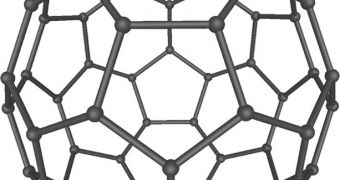A team of investigators announces the development of a new type of nanostructure, one so strong that it exceeds the toughness of steel. The new material is derived solely from simple organic elements.
According to its creators, the material is the strongest organic nanoscale structure ever developed anywhere in the world. The stuff is incredibly lightweight as well, the researchers add.
The innovation was made possible by research conducted at the Tel Aviv University and the Weizmann Institute of Science. The work was led by experts Ehud Gazit and Itay Rousso, whose labs were used for the experiments.
Scientists based here developed and characterized the nanoscale structure, which proved to be both strong, very light, cheap to manufacture, biologically compatible, and also friendly to the environment.
It could be used for a vast array of applications, ranging from the creation of medical implants to producing composite materials that would enable an entirely new series of devices that are currently impossible.
Details of the processes used to create the new material were published in the latest issue of the leading scientific journal Angewandte Chemie.
The team that conducted the investigation included TAU Department of Molecular Biology and Biotechnology experts professor Gazit, Dr. Lihi Adler-Abramovich and Inbal Yanai, alongside Weizmann Institute colleagues Dr. Itay Rousso and Nitzan Kal.
Scientists David Barlam and Roni Shneck, from the Ben-Gurion University, also contributed to the research. The group based its study on a single, simple dipeptide.
This molecule consisted of only two amino-acids, which the team managed to condition in such as way that they were able to self-assemble under ambient conditions.
The main thing that separates the new material from the rest is the fact that it can assemble all by itself, without any heating or manipulation from external sources.
This makes it mechanically equal (and sometimes even superior) to a large number of metallic substances, the team says.
In fact, the material shows some similarities to Kevlar, the renowned, ultra-stiff polymer that is currently used for bullet-proof vests. However, producing the new substance is a lot simpler.
The scientists who conducted the new work imagine a future in which self-cleaning windows and solar panels become a reality. High-density energy storage devices may also be developed.

 14 DAY TRIAL //
14 DAY TRIAL //